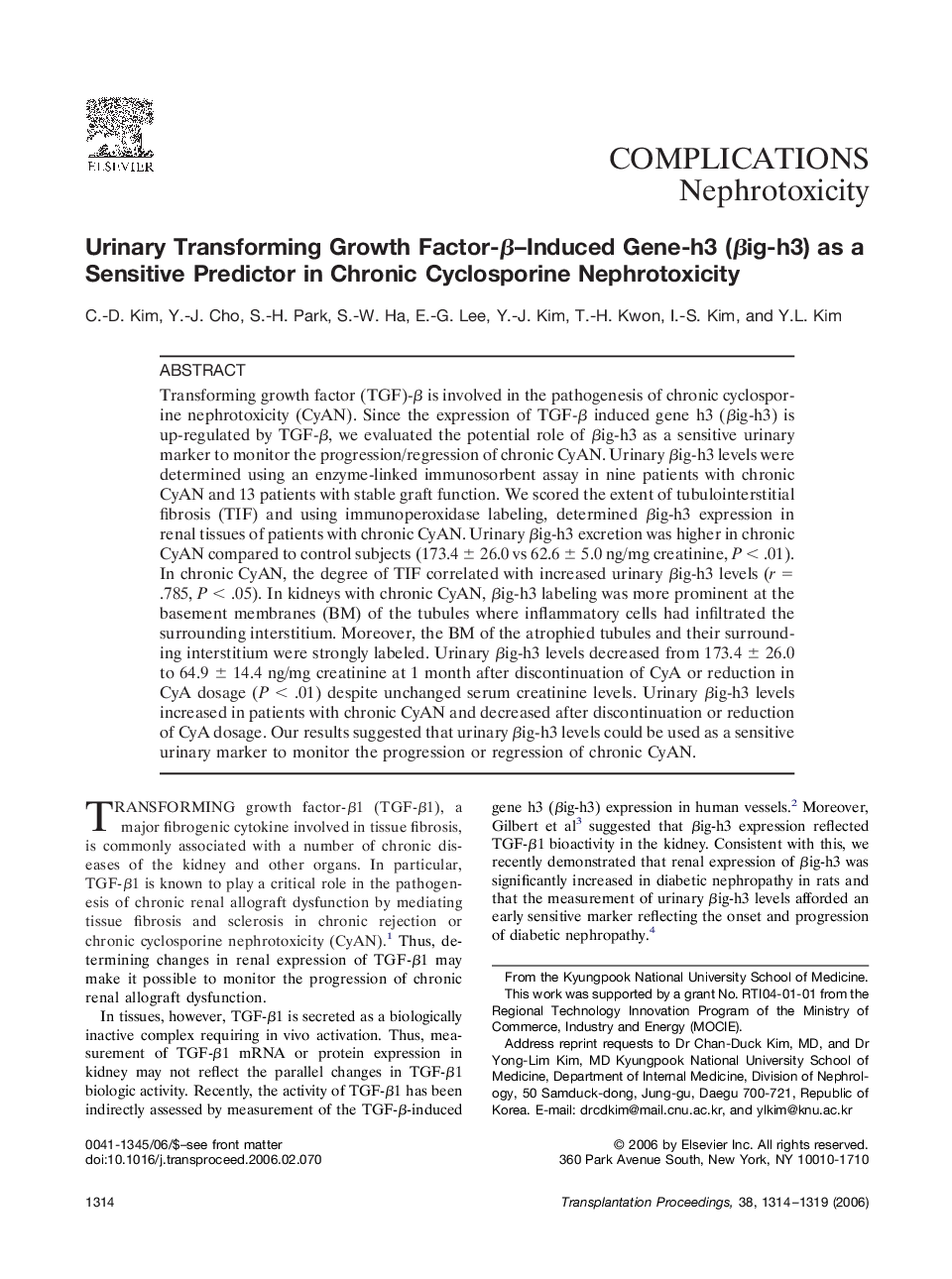| Article ID | Journal | Published Year | Pages | File Type |
|---|---|---|---|---|
| 4263423 | Transplantation Proceedings | 2006 | 6 Pages |
Transforming growth factor (TGF)-β is involved in the pathogenesis of chronic cyclosporine nephrotoxicity (CyAN). Since the expression of TGF-β induced gene h3 (βig-h3) is up-regulated by TGF-β, we evaluated the potential role of βig-h3 as a sensitive urinary marker to monitor the progression/regression of chronic CyAN. Urinary βig-h3 levels were determined using an enzyme-linked immunosorbent assay in nine patients with chronic CyAN and 13 patients with stable graft function. We scored the extent of tubulointerstitial fibrosis (TIF) and using immunoperoxidase labeling, determined βig-h3 expression in renal tissues of patients with chronic CyAN. Urinary βig-h3 excretion was higher in chronic CyAN compared to control subjects (173.4 ± 26.0 vs 62.6 ± 5.0 ng/mg creatinine, P < .01). In chronic CyAN, the degree of TIF correlated with increased urinary βig-h3 levels (r = .785, P < .05). In kidneys with chronic CyAN, βig-h3 labeling was more prominent at the basement membranes (BM) of the tubules where inflammatory cells had infiltrated the surrounding interstitium. Moreover, the BM of the atrophied tubules and their surrounding interstitium were strongly labeled. Urinary βig-h3 levels decreased from 173.4 ± 26.0 to 64.9 ± 14.4 ng/mg creatinine at 1 month after discontinuation of CyA or reduction in CyA dosage (P < .01) despite unchanged serum creatinine levels. Urinary βig-h3 levels increased in patients with chronic CyAN and decreased after discontinuation or reduction of CyA dosage. Our results suggested that urinary βig-h3 levels could be used as a sensitive urinary marker to monitor the progression or regression of chronic CyAN.
